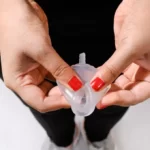
Navigating the world of birth control can be overwhelming, but understanding your options is crucial for making informed decisions about your health. “A Comprehensive Guide to Sprintec Birth Control” serves as an invaluable resource for individuals seeking clarity in the midst of a myriad of contraceptive choices. This all-encompassing guide illuminates the specifics of Sprintec, a widely recognized oral contraceptive, by delving into its usage, efficacy, and potential side effects.
Whether you’re contemplating starting Sprintec or are a current user eager to learn more, our guide offers in-depth insights, shedding light on critical aspects from dosage to handling missed pills, and addressing common concerns and misconceptions. Embark on this informative journey to gain a thorough understanding of Sprintec, empowering yourself to take charge of your reproductive health with confidence.
What is Sprintec Birth Control?
Sprintec manufactured by Teva Pharmaceuticals is a combination hormonal contraceptive, commonly known as a birth control pill or “the pill.” It contains two types of female hormones: an estrogen (ethinyl estradiol) and a progestin (norgestimate). These hormones work together to inhibit the body’s natural cyclical hormones to prevent pregnancy.
Sprintec is used not only as a contraceptive but also to regulate menstrual cycles, reduce the risk of ovarian cysts, and treat acne in women 15 years of age and older who have started their menstrual periods. It’s typically taken as one pill every day at the same time for 21 days, followed by a week of non-hormonal (placebo) pills, during which the user will have a menstrual period.
How does the Sprintec birth control pill work?
The actions of Sprintec include:
- Prevention of ovulation: The medication increases hormone levels in a woman’s body, mimicking the hormonal patterns of pregnancy. This process prevents the ovaries from releasing an egg, known as ovulation, which eliminates the possibility of fertilization and pregnancy.
- Thickening of cervical mucus: By altering the cervical mucus, Sprintec makes it more difficult for sperm to reach the uterus. The thickened mucus acts as a barrier, preventing sperm from traveling further up the reproductive tract to fertilize an egg.
- Alteration of the uterine lining: The hormones in Sprintec change the lining of the uterus, making it less receptive to a fertilized egg. Even if fertilization occurs, the thin lining of the uterus reduces the likelihood of the fertilized egg implanting and developing.
How is Sprintec Birth Control used?
Sprintec Birth Control is used as follows:
- Initial Guidance:
- Before starting, read the Patient Information Leaflet from your pharmacist, and do so each time you get a refill. It includes crucial details on proper pill-taking schedules and actions if you miss a dose.
- Daily Usage:
- Take one pill by mouth every day, at the same time daily, as prescribed by your doctor. Consistency is key to prevent pregnancy.
- If using the chewable tablet, you can either chew it thoroughly before swallowing or swallow it whole. Follow the specific instructions for your brand.
- Handling Missed Doses:
- It’s vital to take the medication exactly as prescribed. Follow the package instructions to find the first tablet, start with it, and proceed in the correct order without skipping any doses. Inconsistencies or missed pills increase your risk of pregnancy.
- Dealing with Vomiting or Diarrhea:
- If you experience vomiting or diarrhea, your birth control pills may not work effectively. You might need to use a back-up method of birth control. Refer to the Patient Information Leaflet or consult your doctor for guidance.
- Timing and Meal Considerations:
- Taking your pill after your evening meal or at bedtime can help manage stomach upset or nausea. However, you can choose a different consistent time that’s easier for you to remember. The key is to take the pill at the same time every day, 24 hours apart.
- Understanding Your Pill Pack:
- The pack contains 21 active pills (with hormones) and possibly 7 reminder pills (without hormones). Take one active pill daily for 21 days straight. If your pack has 28 tablets, take one inactive pill daily for 7 days after your last active pill. If your pack has 21 tablets, don’t take any pills for 7 days post the active pills. You should have your period during the fourth week. Start a new pack the next day after the last inactive pill or after a 7-day break, regardless of whether you have your period.
- First-Time Users:
- If you’re a first-time user and not switching from another hormonal birth control, start your first pill on the first Sunday after your period begins or on the first day of your period. Use a non-hormonal birth control method during the first 7 days alongside Sprintec for protection. If you start on the first day of your period, no additional birth control is needed in the first week.
- Switching Birth Controls:
- If switching from another hormonal method, ask your doctor or pharmacist how to do so properly. They will provide guidance on transitioning without losing protection.
Always consult your doctor or pharmacist if you have any questions or need clarification on the Patient Information Leaflet’s instructions.
What should someone do if they miss a dose?
If someone misses a dose of Sprintec, the specific actions they should take depend on how many pills they have missed and at what point in their cycle the missed dose occurred. Here are general guidelines, but individuals should refer to the patient information leaflet provided with their medication or consult their healthcare provider for instructions specific to their situation:
- If you miss 1 pill:
- Take the missed pill as soon as you remember.
- If it’s almost time for the next dose, take two pills at the same time to catch up.
- Continue taking the remaining pills at the usual time every day.
- No additional birth control is necessary.
- If you miss 2 pills in a row during the first or second week:
- Take two pills on the day you remember and two pills the next day.
- Then, continue taking one pill a day until you finish the pack.
- Use a backup method of birth control (such as condoms or spermicide) for the next 7 days.
- If you miss 2 pills in a row during the third week or 3 or more pills at any point in the cycle:
- If you start your pills on Sunday, keep taking one pill every day until Sunday. On Sunday, throw out the rest of the pack and start a new pack on the same day. Use another method of birth control until you have taken a pill a day for seven consecutive days.
- If you start your pills on any day other than Sunday, take one pill every day until the next Sunday. On Sunday, throw out the rest of the pack and start a new one that same day. Use another method of birth control until you have taken a pill a day for seven consecutive days.
- You may not have your period this month but this is expected. However, if you miss your period two months in a row, call your healthcare provider because you might be pregnant.
- If you miss any of the reminder pills (week 4, non-hormonal pills):
- Discard the missed pills.
- Continue taking one pill each day until the pack is empty.
- You do not need to use a backup method of birth control.
Remember, the more pills you miss, the more likely you are to get pregnant. Missing a pill can cause spotting or light bleeding.
What precautions to take before taking Sprintec?
Before taking Sprintec, individuals should take several precautions, including:
- Allergies and Reactions:
- Inform your doctor or pharmacist if you are allergic to any estrogens (e.g., ethinyl estradiol, mestranol) or progestins (e.g., norethindrone, desogestrel), or if you have any other allergies.
- Be aware that this product may contain inactive ingredients that can cause allergic reactions or other problems.
- Medical History:
- Share your complete medical history with your doctor, especially any history of blood clots, blood clotting disorders, high blood pressure, abnormal breast exams, cancer, high cholesterol or triglyceride levels, depression, diabetes, gallbladder problems, severe headaches/migraines, heart problems, jaundice, kidney disease, liver disease, obesity, stroke, swelling (edema), thyroid problems, or unexplained vaginal bleeding.
- Diabetes:
- If you have diabetes, monitor your blood sugar regularly as this medication may affect blood sugar levels. Report any symptoms of high blood sugar, and be prepared for potential adjustments to your diabetes medications or management plan.
- Dietary Restrictions:
- If you have conditions like diabetes or phenylketonuria (PKU) that require dietary restrictions, note that chewable tablets may contain sugar or aspartame.
- Surgery and Immobility:
- Inform your doctor if you have recently had or will be having surgery, or if you will be confined to a bed or chair for an extended period (e.g., long plane flight), as these conditions increase the risk of blood clots.
- Sun Sensitivity:
- Be aware that this medication may cause blotchy, dark areas on your skin (melasma). Limit sun exposure and use sunscreen and protective clothing to prevent this effect.
- Vision Concerns:
- If you are nearsighted or wear contact lenses, be cautious about potential vision problems. Consult your eye doctor if you experience any issues.
- Fertility and Pregnancy:
- Understand that it may take longer to become pregnant after stopping birth control pills. This medication should not be used during pregnancy. If you become pregnant, inform your doctor immediately.
- Discuss options for reliable birth control, especially after giving birth or experiencing a pregnancy loss/abortion after the first three months.
- Breastfeeding:
- Consult your doctor before breastfeeding, as this medication may decrease breast milk production and a small amount could pass into the breast milk, potentially affecting the nursing infant.
How does Sprintec interact with other medications?
Sprintec can interact with other medications, potentially altering their effects or increasing the risk of adverse reactions. Here’s how it interacts and the precautions you should take:
- Potential Interactions:
- Certain medications might interact with Sprintec, including aromatase inhibitors (like anastrozole, exemestane), fezolinetant, ospemifene, tamoxifen, tizanidine, tranexamic acid, and specific medications used for chronic hepatitis C (such as combinations of ombitasvir/paritaprevir/ritonavir with or without dasabuvir).
- Drugs like griseofulvin, modafinil, rifamycins (e.g., rifampin, rifabutin), ritonavir, St. John’s wort, and certain seizure medications (e.g., barbiturates, carbamazepine, felbamate, phenytoin, primidone, topiramate), as well as certain HIV drugs (like nelfinavir, nevirapine), may reduce the effectiveness of hormonal birth control by decreasing the hormones in your body, potentially leading to pregnancy.
- Precautions & Communication:
- Maintain a comprehensive list of all your medications, including prescription drugs, over-the-counter medicines, and herbal products. Share this list with your healthcare providers to help prevent harmful interactions.
- Do not alter the dosages, start, or stop any medications without prior approval from your doctor.
- If you begin a new medication, discuss with your doctor whether you need additional reliable contraception. Monitor for any spotting or breakthrough bleeding, as these could indicate your birth control is not functioning effectively.
- Lab Interferences:
- Sprintec may affect certain laboratory tests (such as blood clotting factors, thyroid tests), potentially leading to false test results. It’s crucial to inform lab personnel and all your doctors that you are using this medication to avoid misinterpretations of your test results.
How safe is Sprintec birth control pill?
Sprintec is generally safe for most women, boasting years of research and positive feedback. However, its suitability can vary based on individual health conditions, age, and lifestyle factors like smoking.
What are possible side effects of Sprintec?
The possible side effects of Sprintec include:
Common Side Effects:
- Nausea
- Vomiting
- Headache
- Bloating
- Breast tenderness
- Swelling of the ankles/feet due to fluid retention
- Weight change
- Vaginal bleeding between periods (spotting) or missed/irregular periods (especially during the first few months of use)
Serious Side Effects:
- Lumps in the breast
- Mental/mood changes (such as new or worsening depression)
- Severe stomach/abdominal pain
- Unusual changes in vaginal bleeding (like continuous spotting, sudden heavy bleeding, missed periods)
- Dark urine
- Yellowing of the eyes/skin (jaundice)
Potentially Fatal Problems from Blood Clots:
- Deep vein thrombosis
- Heart attack
- Pulmonary embolism
- Stroke
Symptoms of Serious Blood Clot Problems:
- Chest/jaw/left arm pain
- Confusion
- Sudden dizziness/fainting
- Pain/swelling/warmth in the groin/calf
- Trouble speaking
- Sudden shortness of breath/rapid breathing
- Unusual headaches (including headaches with vision changes/lack of coordination, worsening of migraines, sudden/very severe headaches)
- Unusual sweating
- Weakness on one side of the body
- Vision problems/changes (such as double vision, partial/complete blindness)
Allergic Reaction:
- Rash
- Itching/swelling (especially of the face/tongue/throat)
- Severe dizziness
- Trouble breathing
How to store and handle Sprintec Birth Control?
To store and handle Sprintec Birth Control properly, follow these guidelines:
- Storage Conditions:
- Store the packs at room temperature.
- Keep them away from light and moisture to maintain the efficacy of the pills.
- Do not store them in the bathroom where humidity levels are typically higher.
- Safety Measures:
- Ensure that all medications, including Sprintec, are kept out of reach of children and pets. They might be harmful if ingested accidentally.
- Disposal:
- Do not flush Sprintec pills down the toilet or pour them into drains. These methods of disposal can harm the environment.
- When the product is expired or no longer needed, it should be discarded properly. Do not use the pills beyond the expiration date, as they may lose potency.
- For safe disposal methods, consult with your pharmacist or local waste disposal company. They can guide you on how to safely dispose of medications in accordance with local regulations and environmental considerations.
Where can one get Sprintec Birth Control?
Sprintec is accessible through prescription and can be obtained from local pharmacies, health clinics, or trusted online services offering birth control options.
Here are some options to get Sprintec birth control:
- Nurx: Nurx is an online service that provides Sprintec birth control. They charge a $25 medication consultation, which includes unlimited access to their medical team for a full year. They offer free delivery.
- Pandia Health: Pandia Health is another online service that provides Sprintec birth control. They partner with licensed doctors in every state they operate in and accept many forms of insurance. They also offer free delivery.
- Blink Health: Blink Health is an online service that provides Sprintec birth control. They offer free home delivery and have a low price guarantee. They also offer a coupon for first-time users.
- Lemonaid Health: Lemonaid Health is an online service that provides Sprintec birth control. They offer prescriptions and refills online. They accept many forms of insurance and offer affordable out-of-pocket prices.
- Amazon Pharmacy: Amazon Pharmacy provides Tri-Sprintec, which is a brand for ethinyl estradiol/norgestimate. It is a combination of the hormones estrogen and progestin. It is used to prevent pregnancy and may also be used to treat acne. They offer free delivery.
- Wisp: Wisp is an online service that provides Sprintec birth control. They offer no-consult fee and no insurance necessary. They provide free delivery.
What are Sprintec pill alternatives?
If you are looking for alternatives to Sprintec, here are some options to consider:
- Other ethinyl estradiol / norgestimate brands: Estarylla, Femynor, Mili, Mono-Linyah, Nymyo, Previfem, Tri Femynor, Tri-Estarylla, Tri-Linyah, Tri-Lo-Estarylla, Tri-Lo-Linyah, Tri-Lo-Marzia, Tri-Lo-Mili, Tri-Lo-Sprintec, Tri-Mili, Tri-Nymyo, Tri-Previfem, Tri-Sprintec, Tri-VyLibra, Tri-Vylibra Lo, VyLibra.
- Lo Loestrin Fe: A low-dose birth control pill that contains a combination of ethinyl estradiol and norethindrone acetate.
- NuvaRing: A flexible vaginal ring that contains a combination of ethinyl estradiol and etonogestrel.
- Depo-Provera: A progestin-only injectable birth control method.
- Yaz: A birth control pill that contains a combination of ethinyl estradiol and drospirenone.
- Mirena: A hormonal intrauterine device (IUD) that contains levonorgestrel.
- Nexplanon: A progestin-only implant that contains etonogestrel.
- Ortho Tri-Cyclen Lo: A monophasic birth control pill that contains norgestimate and ethinyl estradiol.
- TriNessa Lo: A monophasic birth control pill that contains norgestimate and ethinyl estradiol.
- Tri-Lo-Estarylla: A monophasic birth control pill that contains norgestimate and ethinyl estradiol.
- Tri-Lo-Marzia: A monophasic birth control pill that contains norgestimate and ethinyl estradiol.
- Tri-Lo-Mili: A monophasic birth control pill that contains norgestimate and ethinyl estradiol.
- Tri-Lo-Sprintec: A monophasic birth control pill that contains norgestimate and ethinyl estradiol.
- Tri-Lo-VyLibra: A monophasic birth control pill that contains norgestimate and ethinyl estradiol.
- Tri-Lo-Vylibra Lo: A monophasic birth control pill that contains norgestimate and ethinyl estradiol.
- VyLibra: A monophasic birth control pill that contains norgestimate and ethinyl estradiol.
What are some User reviews about Sprintec?
When it comes to birth control, personal experiences can vary significantly. Below are some real user reviews for Sprintec on WebMD, providing a glimpse into what you might expect. These reviews cover various aspects, including effectiveness, ease of use, and overall satisfaction.
Most Voted Positive Review
“I set a re-occurring alarm on my cell phone, which helped me remember to take the pill every day at the exact same time. My periods were very consistent and light, with no cramping or pain. It didn’t worsen my acne. Sprintec worked really well for me.”
Most Voted Negative Review
“This product did not work for me. I ended up pregnant even though I was taking it correctly. I had a miscarriage when I started the white pills.”
Detailed User Experiences
- Annieeee (19-24, Female): After about five weeks on Sprintec, she experienced unbearable side effects, including a significant increase in depression and anxiety, leading to consideration of anxiety meds. She also reported daily nausea and mood swings.
- Brittany Y. (25-34, Female): She took Sprintec for five years and recommended it for its effectiveness in regulating her period and mood, despite having to switch due to migraines.
- Maria Mauro (25-34, Female): Despite loving how Sprintec made her feel, she regretted taking it after developing gallstones and a liver blood clot, leading to a hospital stay. She advised women to consider an IUD instead.
- Ashley (3-6, Female): She was unhappy with Sprintec, as it worsened her acne. However, she appreciated the light periods and pregnancy prevention.
- BabyG (35-44, Female): The pill made her extremely moody and tired, affecting her daily routine significantly.
- Marcy M. (25-34, Female): She emphasized that people should give hormonal birth control like Sprintec a chance, as it takes 3-6 months for the body to adjust, barring severe side effects.
- Anonymous (19-24, Female): She reported a stroke after just two pills.
- Aksakh (19-24, Female): Praised Sprintec for clearing her acne and regulating her period, with almost no cramps and no pregnancy.
- Brandii007 (25-34, Female): She had been on Sprintec for over 11 years, appreciating the skin benefits, pregnancy prevention, and relief from painful ovarian cysts.
- Lizzie (19-24, Female): After four years on Sprintec, she linked her worst mental health struggles to the pill, deciding to stop and noticing an immediate improvement in her mental state.
- Ash (19-24, Female): Described how Sprintec led her to experience severe mood swings, deep depression, and anxiety, improving only after she stopped taking it.
- Anonymous (19-24, Female): She criticized Sprintec for causing weight gain despite maintaining her diet and exercise routine.
- Zaria (19-24, Female): Started feeling suicidal and had worsened health issues after starting Sprintec.
- Ara (19-24, Nonbinary): Reported terrible experiences, including constant bloating and emotional disturbances.
- DW (19-24, Female): Found Sprintec magical in normalizing her periods and reducing pain, with no side effects or weight gain.
- Liz (35-44, Female): Shared her positive experience but had to stop due to developing diabetes, which she didn’t directly attribute to Sprintec.
- Anonymous (19-24, Female): Praised Sprintec for its effectiveness but criticized it for causing severe premenstrual symptoms and bloating.
- Unknownwoman (19-24, Female): Had a generally positive experience with Sprintec, with minimal side effects.
- Kris (25-34, Female): Developed a pulmonary embolism after four years on Sprintec, leading to a terrifying health scare.
- MW (19-24, Female): Described unbearable nightly nausea after six months on Sprintec, considering stopping it altogether.
Conclusion
Sprintec birth control marks a convergence of reliability, safety, and convenience in contraception. While it offers numerous benefits, the decision to use Sprintec should be informed by thorough research and medical advice, considering individual health nuances. Whether you’re a first-time user or contemplating a switch, understanding Sprintec paves the way for empowered, informed choices in your reproductive health journey.












